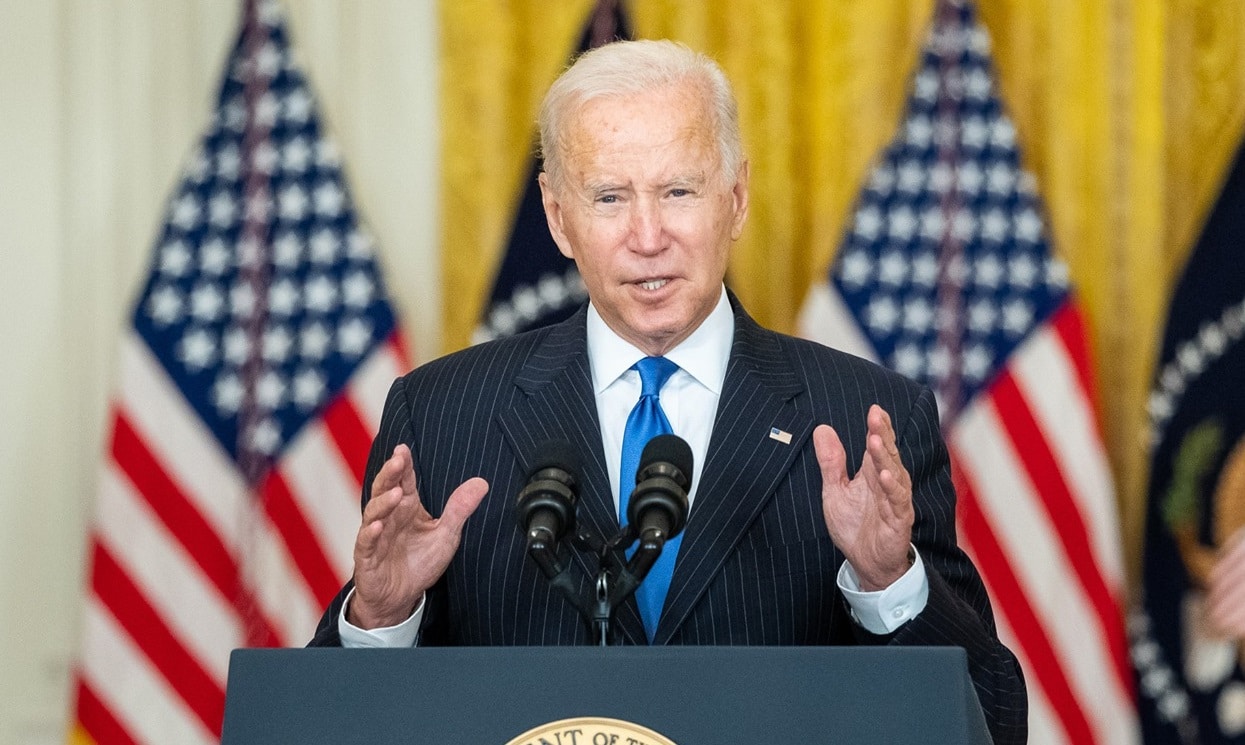Last week marked the 50th anniversary of the international community’s formal recognition of the People’s Republic of China and the expulsion of Taiwan from the United Nations. To mark the occasion, the State Department issued a statement in support of “expanding Taiwan’s participation at the United Nations and in other international fora.” This indication of warming ties between Washington and Taipei came only one day after President Biden, speaking at a town hall, wrongly asserted that the U.S. had “a commitment” to defend Taiwan if it was attacked by China.
Although the White House and State Department quickly clarified his comments, U.S. officials in recent years have made a habit of sending the wrong signals to Beijing and undermining the long-standing “One China” policy. At a time when recalibrating relations with China should be a key strategic objective for U.S. policymakers, the Biden administration’s boilerplate description of its commitment to Taiwan as “rock solid” reinforces China’s growing belief that the issue can only be solved through force.
U.S efforts to deepen relations with Taiwan are viewed in Beijing as a serious affront to the assurances made in the foundational 1972 Shanghai Communique in which the U.S. asserted that it “does not challenge” the Chinese position that “there is one China and that Taiwan is part of China”. The purpose of President Richard Nixon’s “opening” visit was to lay the groundwork for the full normalization of relations between two great powers. Hence, adopting the One China policy was critically important to Nixon’s triangular diplomacy where the U.S. continually maneuvered to be closer to the Soviet Union and China than they were to each other. As a result, for decades, U.S. policy largely prioritized improving relations with China while studiously avoiding any endorsement of Taiwanese independence or elevating its international status.
Today, however, this prudential long-standing policy is increasingly criticized on the grounds that strategic competition with China warrants an entirely new approach. To avoid the fate of the Melians in the Peloponnesian War, some make justice-based claims to argue that Taiwan is an exemplary sovereign democratic nation worthy of the Free World’s protection from authoritarian aggression. Others, such as former Secretary of State Mike Pompeo, use this reasoning to argue for a revitalized Cold War-style “alliance of democracies” that tacitly includes Taiwan. In both cases, elevating Taiwan in international fora, sending cabinet-level officials to visit the island, and training its defense forces reflects this broader shift away from prioritizing stable U.S.-China relations to incorporating Taiwan into a crude neo-containment strategy in East Asia.
The Biden administration is, at best, sending mixed signals about its stance on Taiwan. Careful observers hear less emphasis on the need for “peaceful reunification” and a greater insistence on the endurance of the “rock-solid” commitment the U.S. supposedly has to Taiwan. Biden’s comments may be dismissed in Beijing as a rhetorical flub from which no broader implications should be drawn. However, it is more likely that Chinese leaders view them as Freudian slips reflective of a revisionist trend in U.S. policy that dutifully repeats the assurances made in the Shanghai Communique while contradicting the spirit, if not the letter, of the stated and long-accepted U.S. position.
Similarly, the administration’s “competitive when it should be, collaborative where it can be, and adversarial when it must be” approach to U.S.-China relations raises the question of whether Taiwan falls into the “collaborative” or “competitive” and “adversarial” categories. At this stage, the former is certainly out of the question. Then what are the U.S. and China competing over? It goes without saying that a war over Taiwan would be a disaster for the U.S. and could even conceivably lead to a nuclear exchange. U.S. policymakers have a moral and political obligation to avoid this outcome.
The willingness of both the Trump and Biden administrations to deepen ties with Taipei at the expense of overall U.S.-China relations is not cost-free. Regardless of the stated rationale, undermining the One China policy risks sparking a crisis in the Taiwan Strait, rapidly increasing tensions with Beijing, and obstructing diplomatic efforts to rebalance the U.S.-China trading relationship—the consequences of which directly and indirectly affect the economic well-being of millions of Americans.
The U.S. drift away from the One China policy is not the only reason tensions are rising in the Taiwan Strait. In recent years, China has also handicapped its prospects for achieving a peaceful reunification through its belligerent rhetoric and increased allusions to the desirability of force. However, U.S. efforts to deepen ties with Taipei and promote its participation in international fora only risks inviting a Chinese attack brought on by externally validated worst case assumptions about U.S. intentions.
The One China policy was originally designed to subordinate the Taiwan issue for larger purposes. Policymakers cannot afford to lose sight of these higher priorities for U.S. national interests.
Matthew Mai is a research assistant at Defense Priorities. Previously, he was a fall 2020 Marcellus policy fellow with the John Quincy Adams Society.

